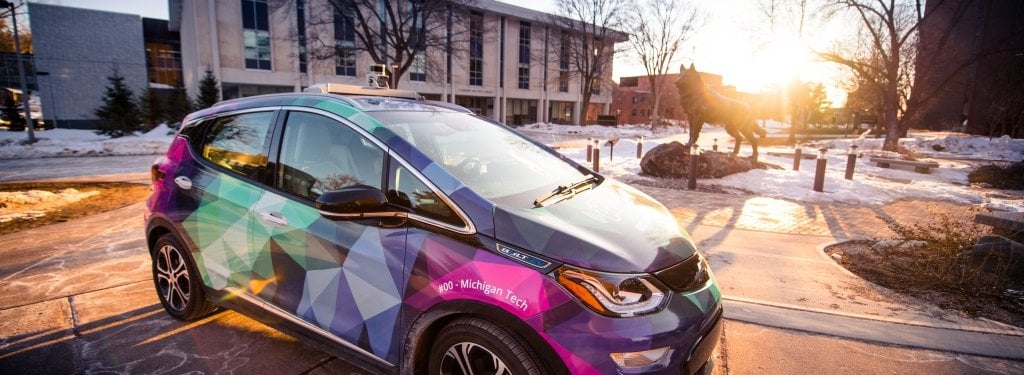The Advanced Power Systems Labs (APS LABS) drives its semi-truck Mobile Lab down to Fort Worth, Texas, this week for the O'Reilly 500 to demo autonomous vehicle technology.
Autonomous vehicles are coming. But what a lot of people don't understand about self-driving cars—and more generally vehicles with enhanced sensing and feedback—is the underlying technology driving the autonomous vehicle industry.
APS LABS is developing and testing intervehicle communication software and a suite of autonomous and environment detection sensors to reduce fuel and electrical energy needs. They're creating the car of the not-so-distant future.
To do so, they're starting with a crowd that already loves cars: NASCAR fans at the Texas Motor Speedway watching the O'Reilly 500 April 5-8. They will be offering ride-and-drives with several 2017 Chevy Volts that are hooked up to sensors that feed into live data streams accessible in the Mobile Lab. People will be able to meet with the engineers who design these systems and learn about the safety precautions, advancements under the car's hood and cloud computing that build up the intelligence of next generation vehicles.
APS LABS present NEXTCAR
The APS LABS project, funded under the Department of Energy’s ARPA-E NEXTCAR program, seeks to reduce fuel consumption and increase electrical range through connected and automated technologies. The goal is to reduce fuel consumption by improving powertrain control technology—that is, the get-up-and-go of a vehicle—as well as the communication between vehicles. This can be vehicle-to-vehicle communication ("Hey! I'm driving here."), vehicle-to-infrastructure communication ("Roadwork on the bridge.") and vehicle-to-traffic communication ("Accident ahead.") The three are respectively called V2V, V2I and V2X technology; they all rely on cloud computing to work.

What is unique about the APS LABS set-up is that the engineers can monitor vehicle operations as their fleet drives—feeding a cloud computing traffic and control center in the Mobile Lab. For research, this is crucial because optimizing vehicle dynamics needs to happen in an actual environment instead of in a simulated lab space. At the same time, they need controls and set procedures in place to make sure the trends they're seeing are significant. The efforts pay off— optimized vehicle powertrain control enabled with V2V and other vehicle connection can reduce fuel energy by more than 20 percent and increase the electric vehicle range by more than six percent.
"These seamless technologies will operate without the driver being aware of what’s happening under the hood," says Jeff Naber, director of the APS LABS.
On your mark, get set, go—Texas Motor Speedway
While a Volt cannot keep up with any Earnhardts, NASCAR fans will be impressed by the vehicle connectivity and the speed of the mobile lab cloud computing.

"The Volt has one of the most complex drive systems of any vehicle today – with an internal combustion engine and two electrical motors," Naber says. "The modes in which this vehicle operates and how they can be controlled will amaze."
The Mobile Lab is a fully outfitted lab—equipped with test cells, connected vehicle traffic center, sufficient power generation to support a small community and much more. Housed in an expandable, double-wide trailer, it’s pulled by a class 8 semi-truck with a Detroit Diesel DD15 engine, the latest in heavy-duty diesel technology. Inside, the demonstration and teaching space can be configured for multiple uses.
The APS LABS demos aren't simply a pit stop at the Texas Motor Speedway during the O'Reilly 500, they're a showcase of the what the future holds for advanced vehicle technologies, a future people can actually see and touch.
Michigan Technological University is an R1 public research university founded in 1885 in Houghton, and is home to nearly 7,500 students from more than 60 countries around the world. Consistently ranked among the best universities in the country for return on investment, Michigan's flagship technological university offers more than 120 undergraduate and graduate degree programs in science and technology, engineering, computing, forestry, business, health professions, humanities, mathematics, social sciences, and the arts. The rural campus is situated just miles from Lake Superior in Michigan's Upper Peninsula, offering year-round opportunities for outdoor adventure.






Comments